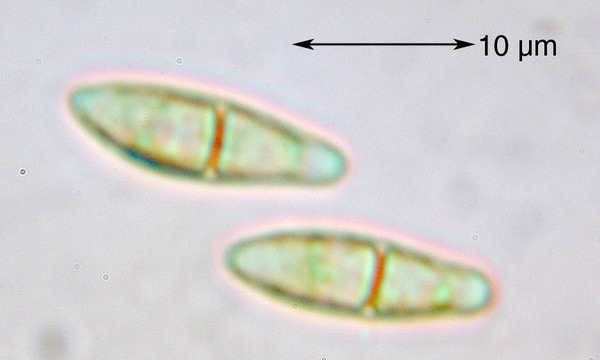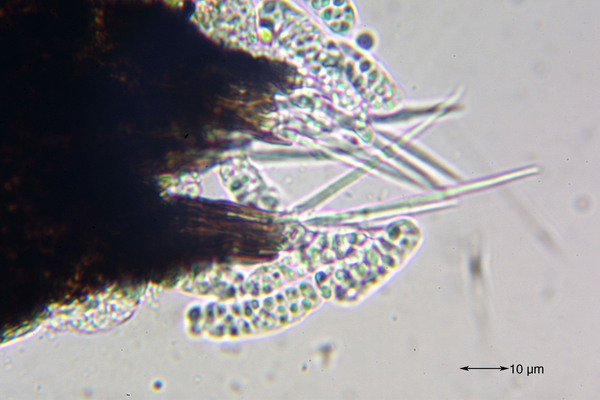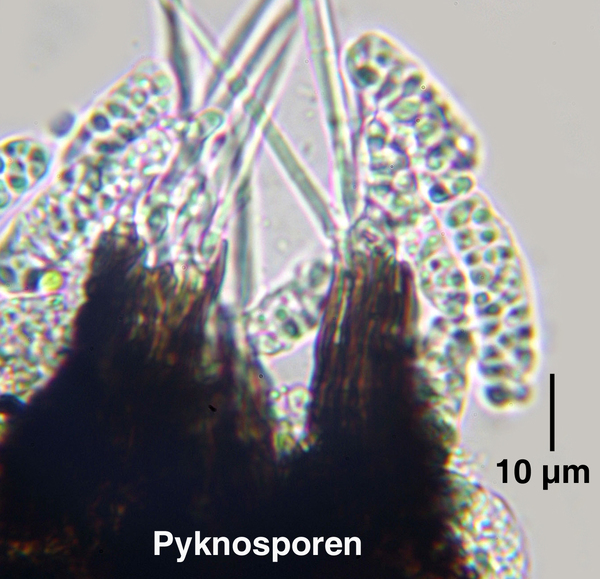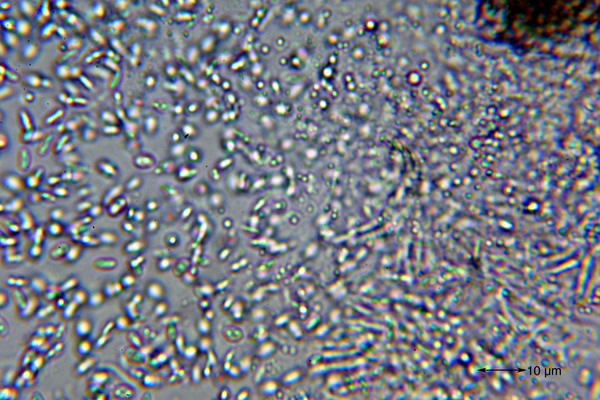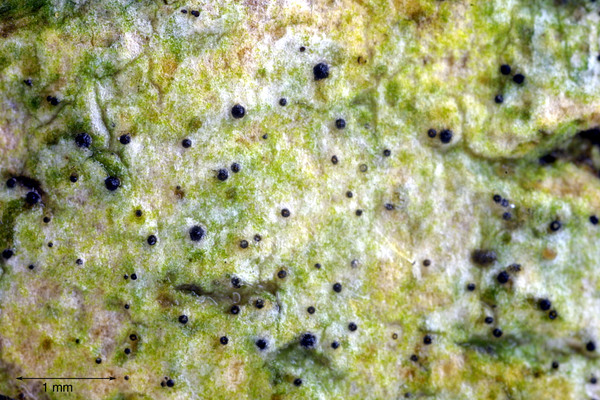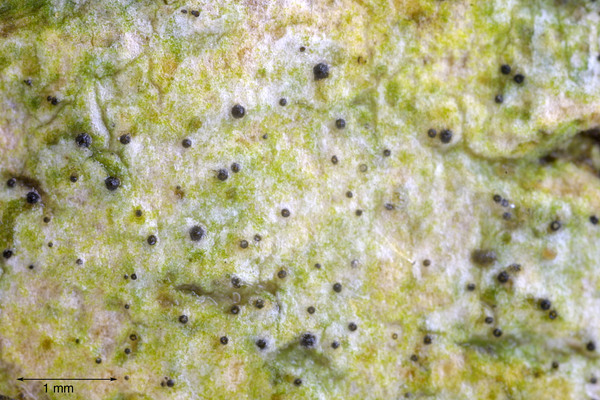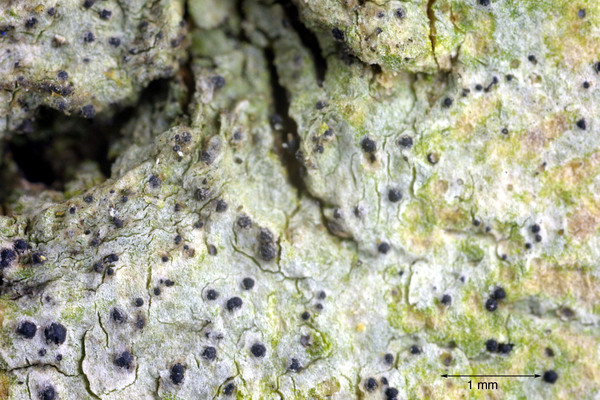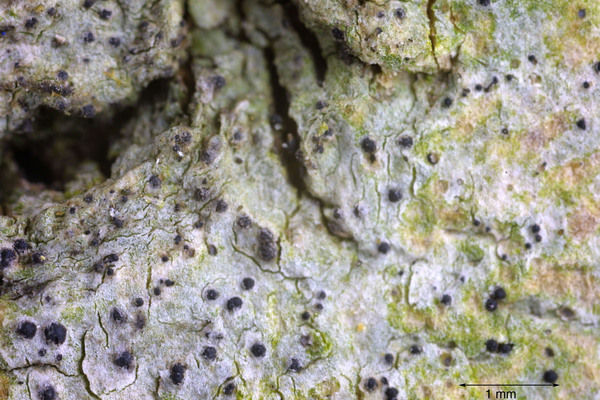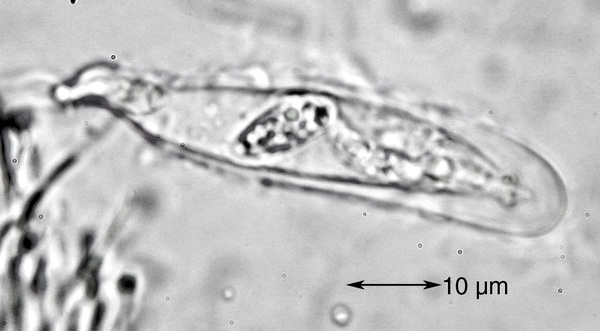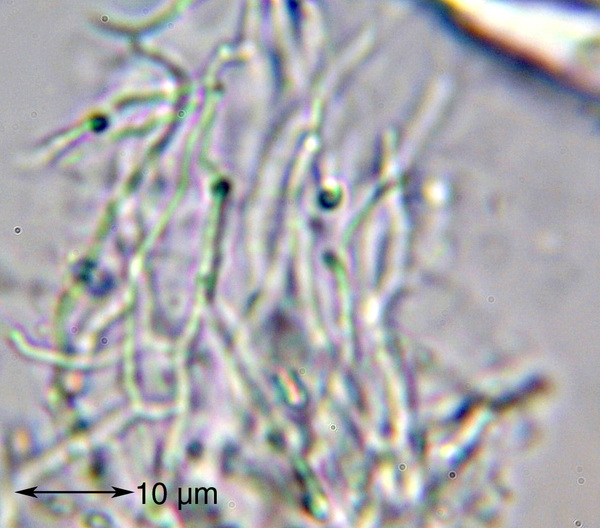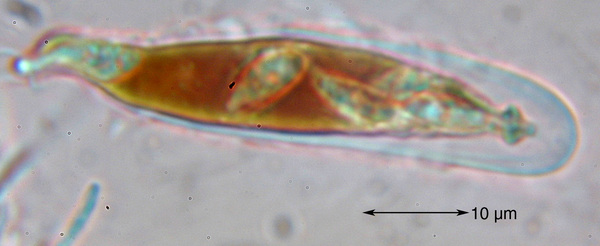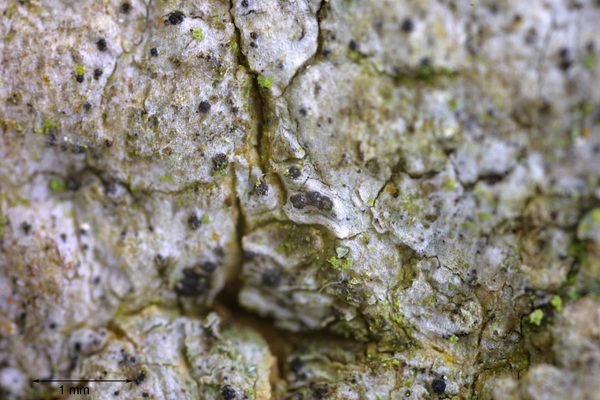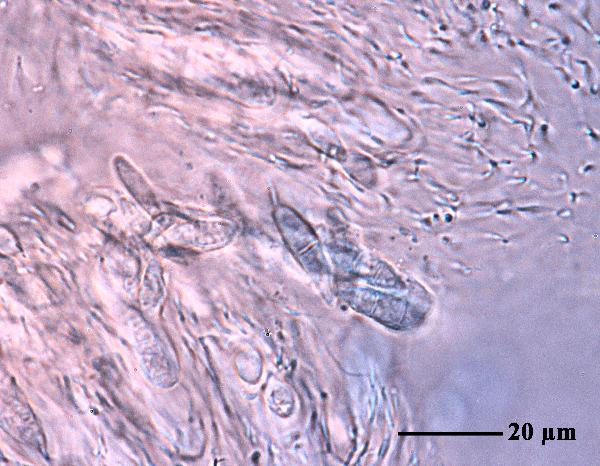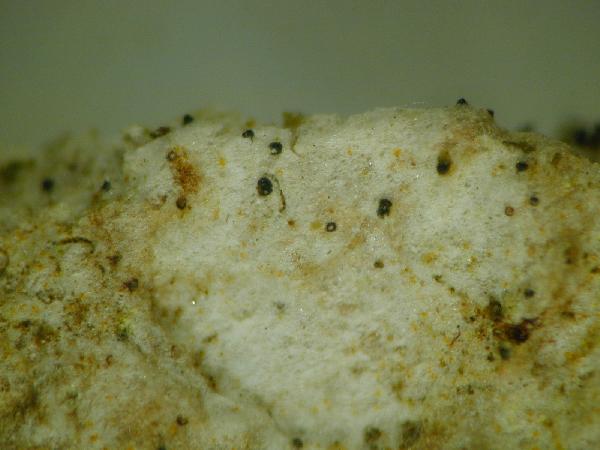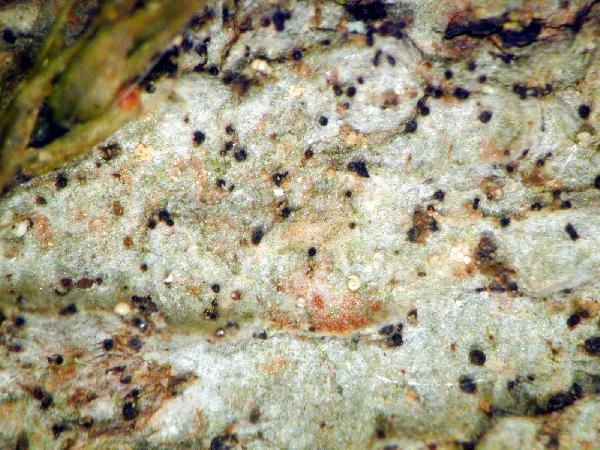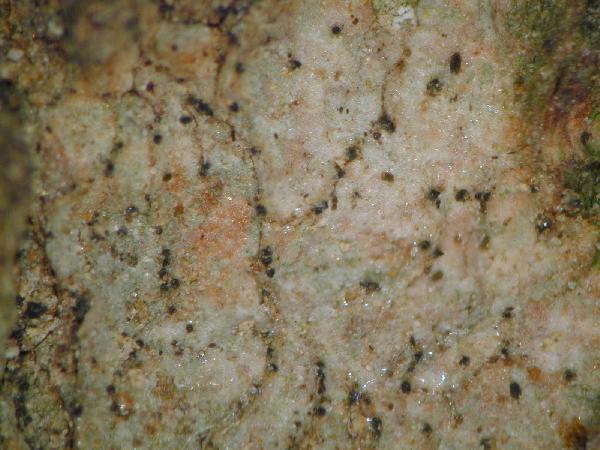Anisomeridium polypori (Ellis & Everh.) M.E. Barr
in Barr & al., Mem. New York Bot. Gard., 79: 76, 1996. Basionym: Apiospora polypori Ellis & Everh. - North Amer. Pyrenom.: 311, 1892.
Synonyms: Anisomeridium juistense (Erichsen) R.C. Harris; Anisomeridium nyssaegenum (Ellis & Everh.) R.C. Harris; Anisomeridium willeyanum (R.C. Harris) R.C. Harris; Arthopyrenia willeyana R.C. Harris; Didymella polypori (Ellis & Everh.) Ellis & Everh.; Ditremis nyssaegena (Ellis & Everh.) R.C. Harris; Melanopsamma corticola Ellis & Everh.; Mycosphaerella hepaticarum (Pat.) Petrak; Sarcinulella banksiae B. Sutton & Alcorn; Stigmatea hepaticarum Pat.; Thelidium juistense Erichsen; Zygonella nyssaegenum Ellis & Everh.
Distribution: N - Frl (Tretiach & Carvalho 1993), Ven (Thor & Nascimbene 2007), TAA (Thor & Nascimbene 2007, Nascimbene & al. 2014, 2015, 2022, Nascimbene 2014, Nimis & al. 2015, Trindade & al. 2021), Lomb (UPS-L-166802), Piem, Emil (Nimis & al. 1996, Fariselli & al. 2020). C - Tosc (Tretiach & Carvalho 1993, Tretiach & Nimis 1994, Brunialti & Frati 2010, Benesperi 2011), Marc (Nimis & Tretiach 1999). S - Pugl (Nimis & Tretiach 1999), Bas (Bartoli & Puntillo 1996, 1998), Cal (Puntillo 1996), Si (Ravera & al. 2024).
Description: Thallus crustose, mostly endosubstratic and inconspicuous, ecorticate, effuse, whitish grey to pale grey-green. Perithecia rather rare, 0.15-0.25 mm across, globose to subconical, at first immersed, later more or less superficial. Exciple brown and 30-50 μm thick in upper part; paler and thinner in lower part, of cellular hyphae, usually without bark cells; involucrellum poorly developed, apical, K+ green; hamathecium of slender, branched and anastomosing, long-celled, c. 1 μm thick pseudoparaphyses; periphyses absent; hymenial gel I-. Asci 8-spored, cylindrical-clavate, K/I-, fissitunicate, the apical dome with an indistinct ocular chamber. Ascospores 1-2(-3)-septate, hyaline, clavate-fusiform, the part above the primary septum wider and about twice as long as the lower part, (12-)14-20(-23) x (3-)4.5-5(-6) μm. Pycnidia black, prominent, of two types: a) 0.1-0.15 mm across, up to 0.2 mm high, sessile, conical, extruding a white, thread-like, very long gelatinous cirrus containing ellipsoid or ovoid macroconidia with a truncate base, measuring 3.5-4.5 x 1.8-2 μm. b) 0.05-0.1 mm across, mostly immersed, globose, with short-bacilliform to narrowly ellipsoid microconidia measuring 2-3 x 1-1.3 μm. Photobiont trentepohlioid. Spot tests: thallus K-, C-, KC-, P-, UV-. Chemistry: without lichen substances.Note: a mild-temperate, perhaps holarctic species, mainly found on Sambucus along rivers and brooks. Overlooked for a long time, and certainly more widespread throughout Italy, with optimum in the submediterranean belt. For further information see Aptroot (1999).
Growth form: Crustose
Substrata: bark
Photobiont: Trentepohlia
Reproductive strategy: mainly sexual, or asexual by conidia and thalloconidia
Most common in areas with a humid-warm climate (e.g. most of Tyrrenian Italy)
Commonnes-rarity: (info)
Alpine belt: absent
Subalpine belt: absent
Oromediterranean belt: absent
Montane belt: rare
Submediterranean belt: rather rare
Padanian area: absent
Humid submediterranean belt: rather common
Humid mediterranean belt: very rare
Dry mediterranean belt: absent

Predictive model
Herbarium samples
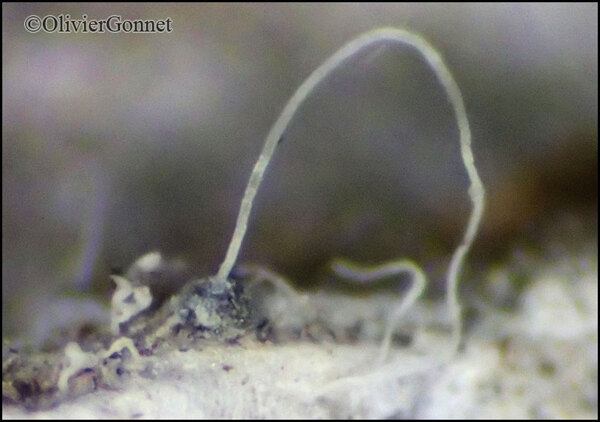
courtesy Olivier Gonnet - Source: https://www.afl-lichenologie.fr/Photos_AFL/Photos_AFL_A/Textes_A2/Anisomeridium_polypori.htm
France, Session AFL 2015 dans le Lot, Blanzaguet
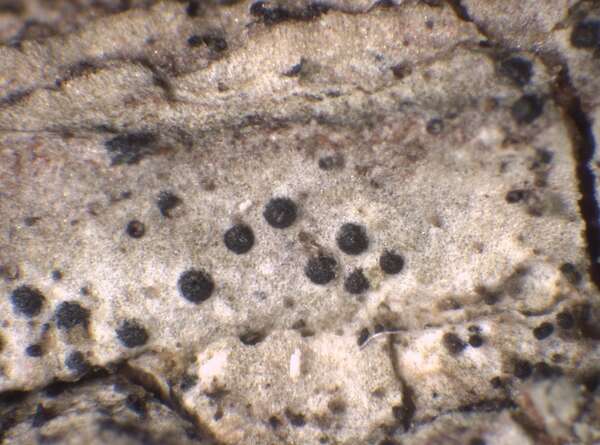

P.L. Nimis; Owner: Department of Life Sciences, University of Trieste
Herbarium: TSB (31399)
2002/12/03
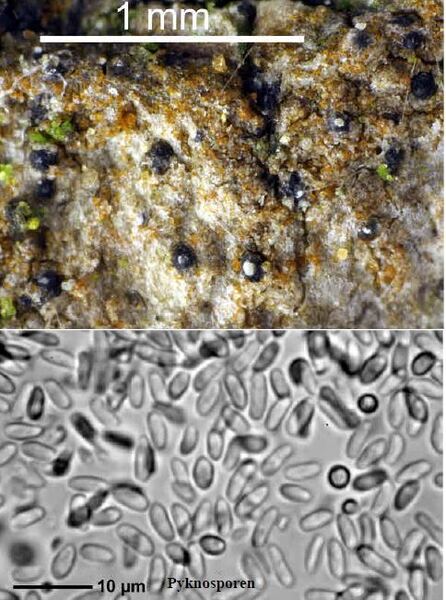

Felix Schumm – CC BY-SA 4.0
Fig. [14896], Germany, Baden-Württemberg, Kreis Göppingen, Faurndau, Friedhof, 48.70390° N, 9.61455° E, 314 m, TK 7223. Leg. et det. Schumm 21.05.2009
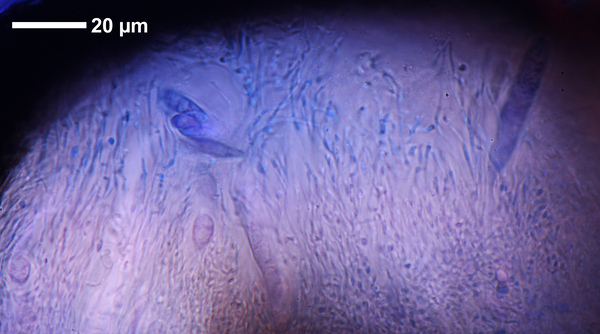

Felix Schumm – CC BY-SA 4.0
[ABL-69726], Madeira, Camacha, Valle Paraiso, on bark. 36°17’ N, 3°25’ E, alt. 750 m. Leg. et det. Aptroot 06.2011
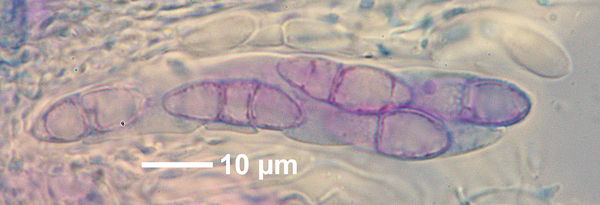

Felix Schumm – CC BY-SA 4.0
[ABL-69726], Madeira, Camacha, Valle Paraiso, on bark. 36°17’ N, 3°25’ E, alt. 750 m. Leg. et det. Aptroot 06.2011
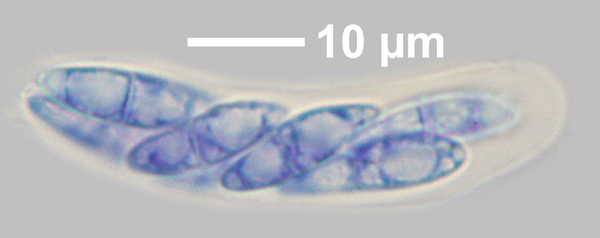

Felix Schumm – CC BY-SA 4.0
[ABL-69726], Madeira, Camacha, Valle Paraiso, on bark. 36°17’ N, 3°25’ E, alt. 750 m. Leg. et det. Aptroot 06.2011
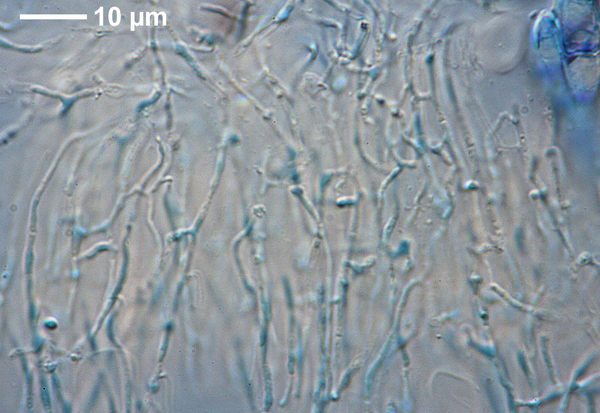

Felix Schumm – CC BY-SA 4.0
[ABL-69726], Madeira, Camacha, Valle Paraiso, on bark. 36°17’ N, 3°25’ E, alt. 750 m. Leg. et det. Aptroot 06.2011
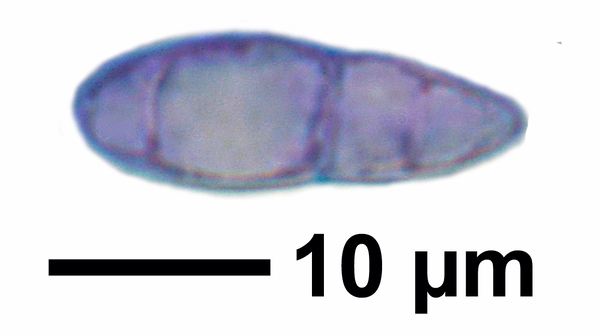

Felix Schumm – CC BY-SA 4.0
[ABL-69726], Madeira, Camacha, Valle Paraiso, on bark. 36°17’ N, 3°25’ E, alt. 750 m. Leg. et det. Aptroot 06.2011
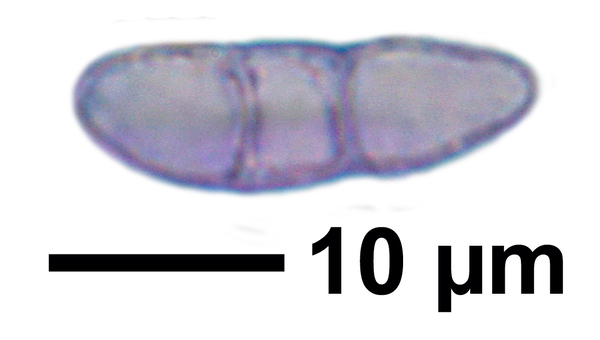

Felix Schumm – CC BY-SA 4.0
[ABL-69726], Madeira, Camacha, Valle Paraiso, on bark. 36°17’ N, 3°25’ E, alt. 750 m. Leg. et det. Aptroot 06.2011
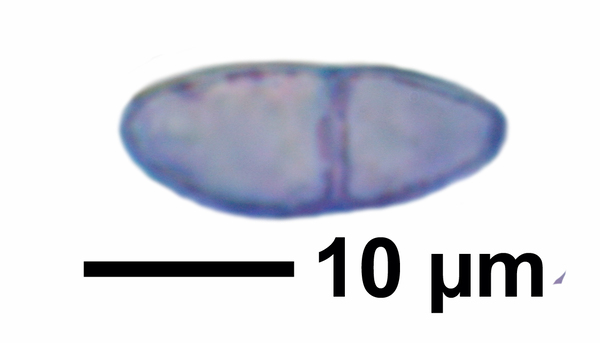

Felix Schumm – CC BY-SA 4.0
[ABL-69726], Madeira, Camacha, Valle Paraiso, on bark. 36°17’ N, 3°25’ E, alt. 750 m. Leg. et det. Aptroot 06.2011
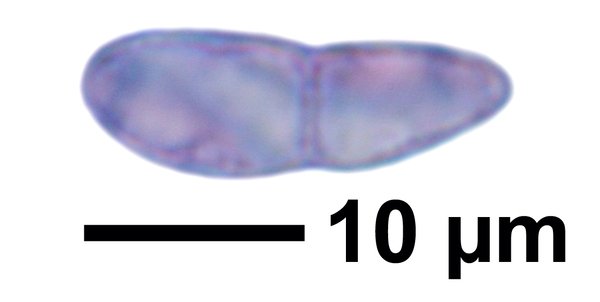

Felix Schumm – CC BY-SA 4.0
[ABL-69726], Madeira, Camacha, Valle Paraiso, on bark. 36°17’ N, 3°25’ E, alt. 750 m. Leg. et det. Aptroot 06.2011
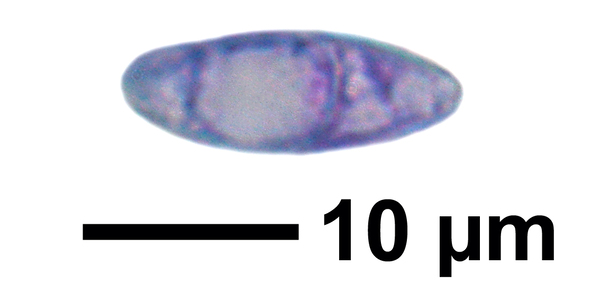

Felix Schumm – CC BY-SA 4.0
[ABL-69726], Madeira, Camacha, Valle Paraiso, on bark. 36°17’ N, 3°25’ E, alt. 750 m. Leg. et det. Aptroot 06.2011
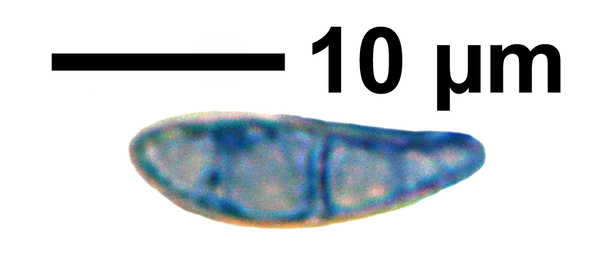

Felix Schumm – CC BY-SA 4.0
[ABL-69726], Madeira, Camacha, Valle Paraiso, on bark. 36°17’ N, 3°25’ E, alt. 750 m. Leg. et det. Aptroot 06.2011
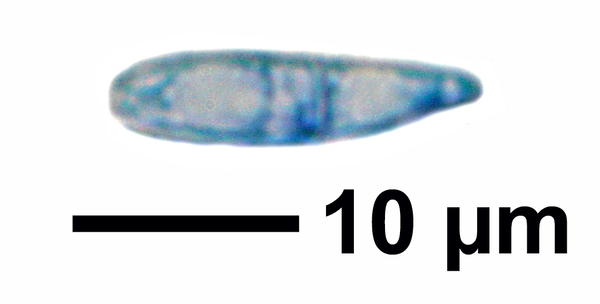

Felix Schumm – CC BY-SA 4.0
[ABL-69726], Madeira, Camacha, Valle Paraiso, on bark. 36°17’ N, 3°25’ E, alt. 750 m. Leg. et det. Aptroot 06.2011
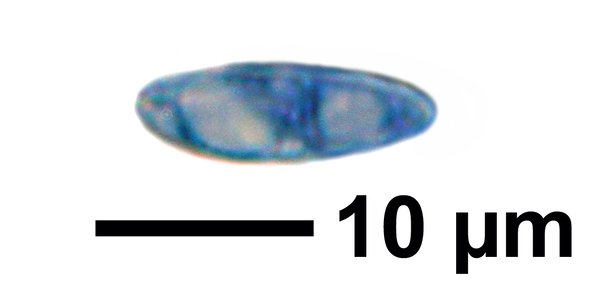

Felix Schumm – CC BY-SA 4.0
[ABL-69726], Madeira, Camacha, Valle Paraiso, on bark. 36°17’ N, 3°25’ E, alt. 750 m. Leg. et det. Aptroot 06.2011
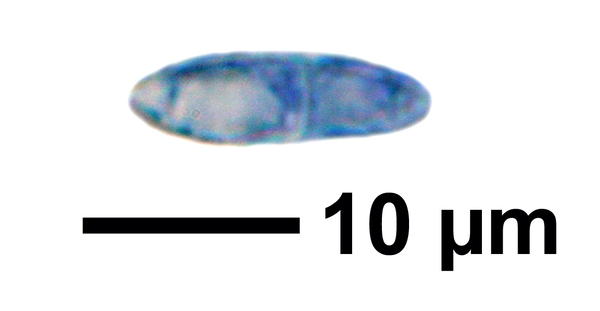

Felix Schumm – CC BY-SA 4.0
[ABL-69726], Madeira, Camacha, Valle Paraiso, on bark. 36°17’ N, 3°25’ E, alt. 750 m. Leg. et det. Aptroot 06.2011
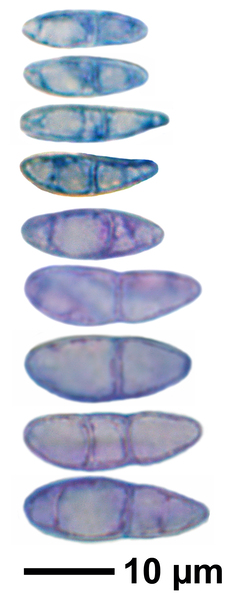

Felix Schumm – CC BY-SA 4.0
[ABL-69726], Madeira, Camacha, Valle Paraiso, on bark. 36°17’ N, 3°25’ E, alt. 750 m. Leg. et det. Aptroot 06.2011
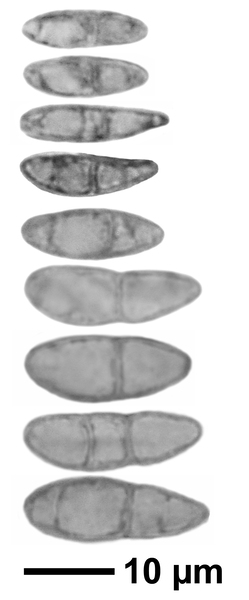

Felix Schumm – CC BY-SA 4.0
[ABL-69726], Madeira, Camacha, Valle Paraiso, on bark. 36°17’ N, 3°25’ E, alt. 750 m. Leg. et det. Aptroot 06.2011
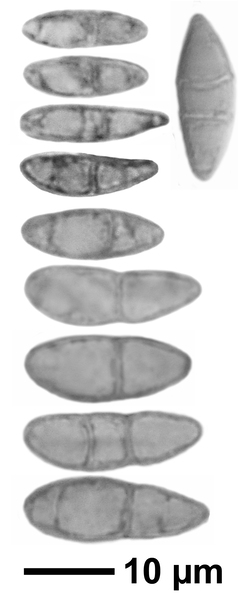

Felix Schumm – CC BY-SA 4.0
[ABL-69726], Madeira, Camacha, Valle Paraiso, on bark. 36°17’ N, 3°25’ E, alt. 750 m. Leg. et det. Aptroot 06.2011
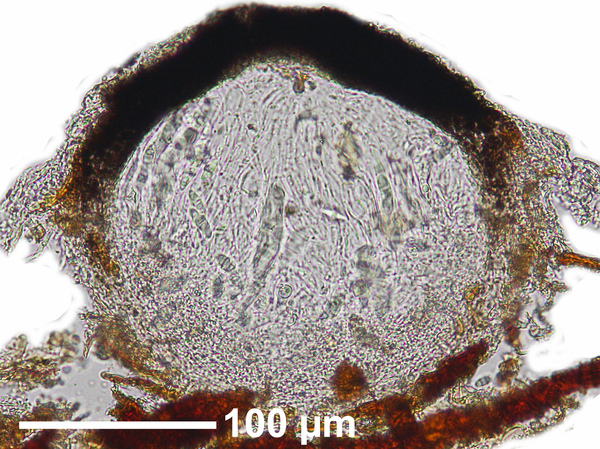

Felix Schumm – CC BY-SA 4.0
[ABL-69726], Madeira, Camacha, Valle Paraiso, on bark. 36°17’ N, 3°25’ E, alt. 750 m. Leg. et det. Aptroot 06.2011
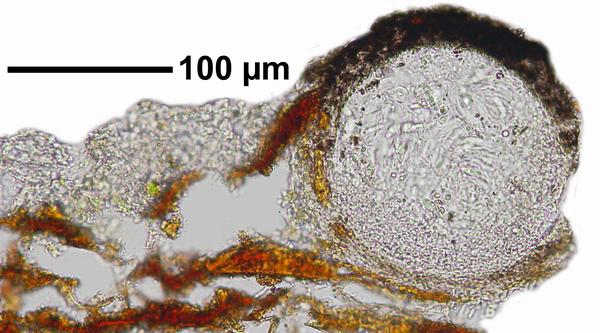

Felix Schumm – CC BY-SA 4.0
[ABL-69726], Madeira, Camacha, Valle Paraiso, on bark. 36°17’ N, 3°25’ E, alt. 750 m. Leg. et det. Aptroot 06.2011
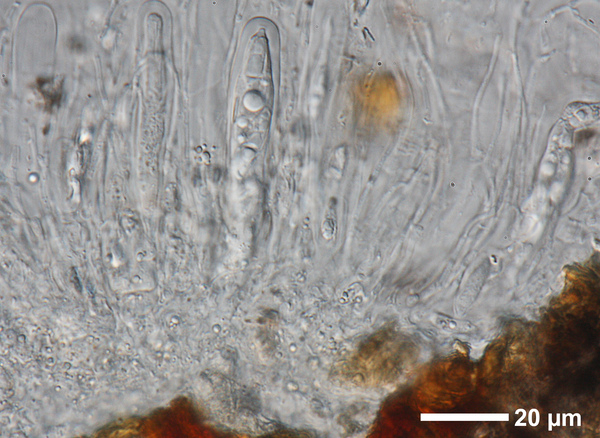

Felix Schumm – CC BY-SA 4.0
[ABL-69726], Madeira, Camacha, Valle Paraiso, on bark. 36°17’ N, 3°25’ E, alt. 750 m. Leg. et det. Aptroot 06.2011
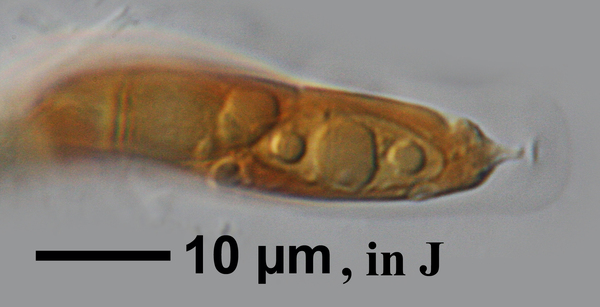

Felix Schumm – CC BY-SA 4.0
[ABL-69726], Madeira, Camacha, Valle Paraiso, on bark. 36°17’ N, 3°25’ E, alt. 750 m. Leg. et det. Aptroot 06.2011
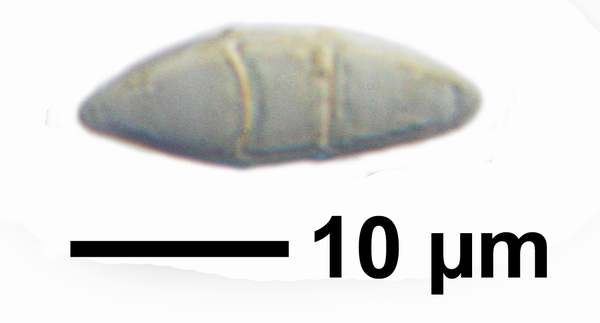

Felix Schumm – CC BY-SA 4.0
[ABL-69726], Madeira, Camacha, Valle Paraiso, on bark. 36°17’ N, 3°25’ E, alt. 750 m. Leg. et det. Aptroot 06.2011
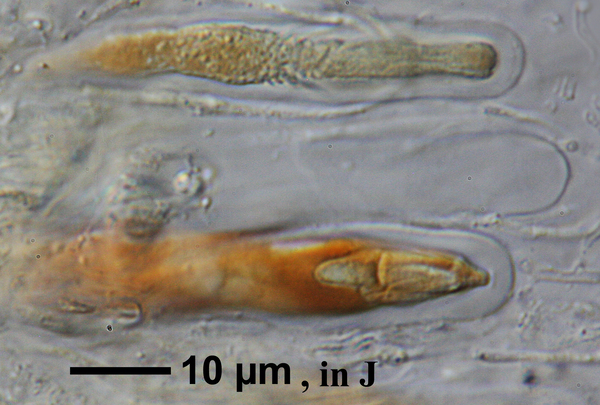

Felix Schumm – CC BY-SA 4.0
[ABL-69726], Madeira, Camacha, Valle Paraiso, on bark. 36°17’ N, 3°25’ E, alt. 750 m. Leg. et det. Aptroot 06.2011
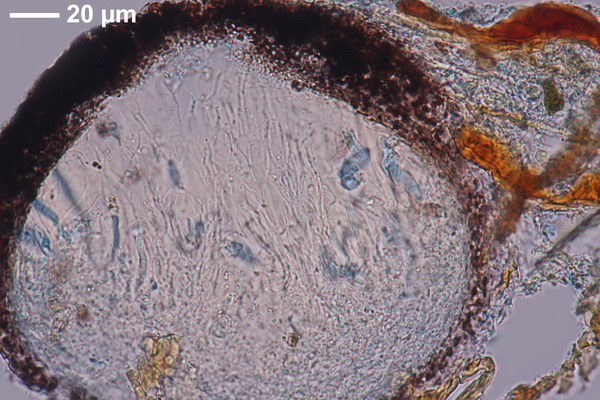

Felix Schumm – CC BY-SA 4.0
[ABL-69726], Madeira, Camacha, Valle Paraiso, on bark. 36°17’ N, 3°25’ E, alt. 750 m. Leg. et det. Aptroot 06.2011
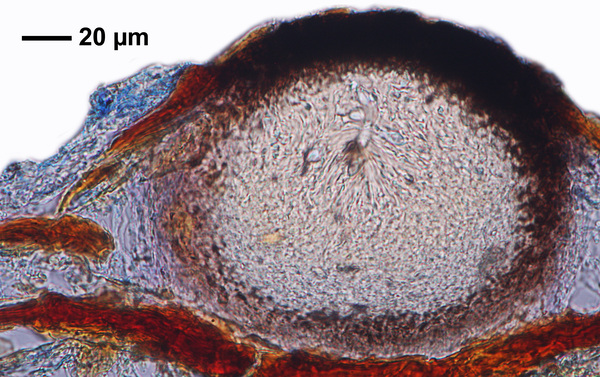

Felix Schumm – CC BY-SA 4.0
[ABL-69726], Madeira, Camacha, Valle Paraiso, on bark. 36°17’ N, 3°25’ E, alt. 750 m. Leg. et det. Aptroot 06.2011
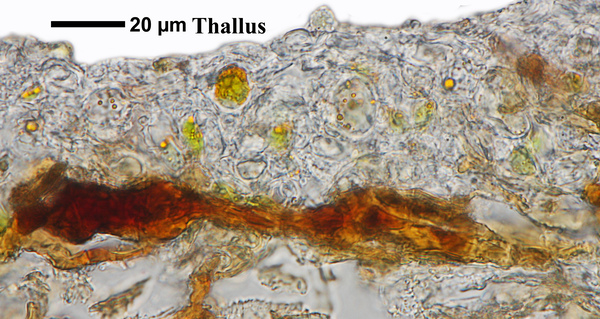

Felix Schumm – CC BY-SA 4.0
[ABL-69726], Madeira, Camacha, Valle Paraiso, on bark. 36°17’ N, 3°25’ E, alt. 750 m. Leg. et det. Aptroot 06.2011
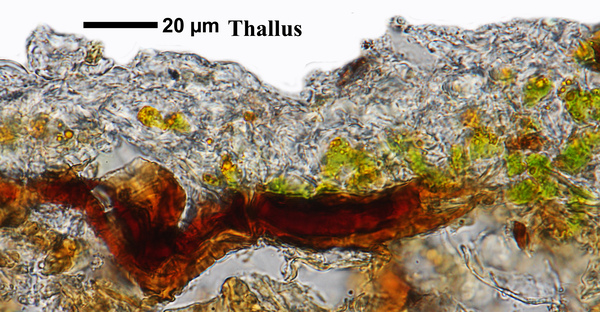

Felix Schumm – CC BY-SA 4.0
[ABL-69726], Madeira, Camacha, Valle Paraiso, on bark. 36°17’ N, 3°25’ E, alt. 750 m. Leg. et det. Aptroot 06.2011
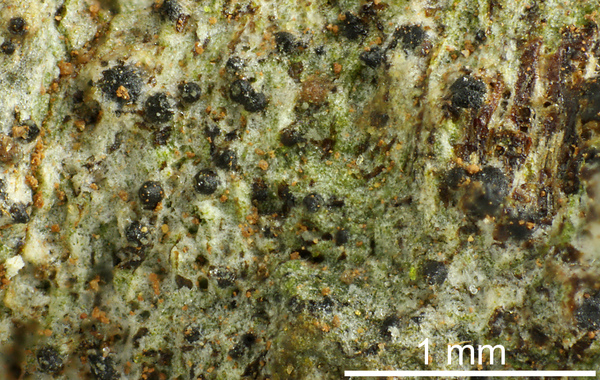

Felix Schumm – CC BY-SA 4.0
[ABL-69726], Madeira, Camacha, Valle Paraiso, on bark. 36°17’ N, 3°25’ E, alt. 750 m. Leg. et det. Aptroot 06.2011
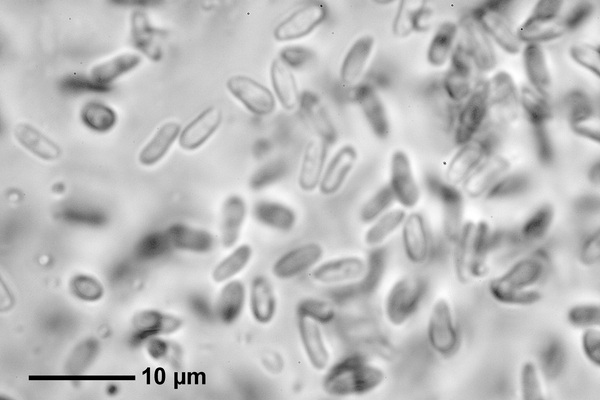

Felix Schumm - CC BY-SA 4.0
Fig. [14896], Germany, Baden-Württemberg, Kreis Göppingen, Faurndau, Friedhof, 48.70390° N, 9.61455° E, 314 m, TK 7223. Leg. et det. Schumm 21.05.2009
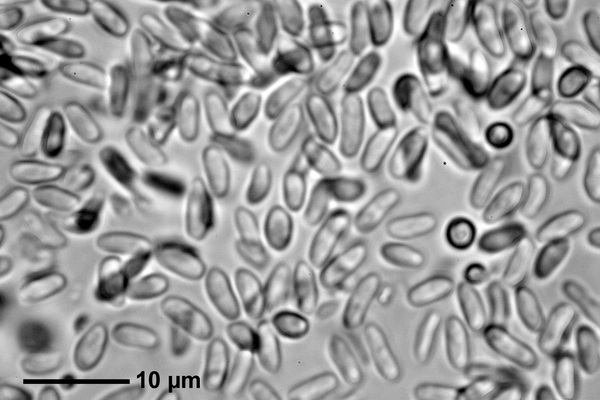

Felix Schumm - CC BY-SA 4.0
Fig. [14896], Germany, Baden-Württemberg, Kreis Göppingen, Faurndau, Friedhof, 48.70390° N, 9.61455° E, 314 m, TK 7223. Leg. et det. Schumm 21.05.2009
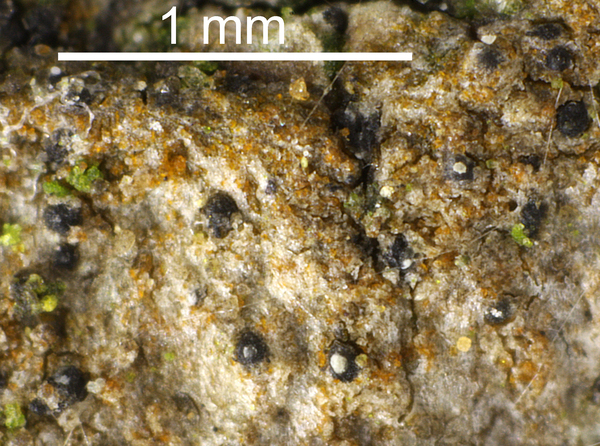

Felix Schumm - CC BY-SA 4.0
Fig. [14896], Germany, Baden-Württemberg, Kreis Göppingen, Faurndau, Friedhof, 48.70390° N, 9.61455° E, 314 m, TK 7223. Leg. et det. Schumm 21.05.2009
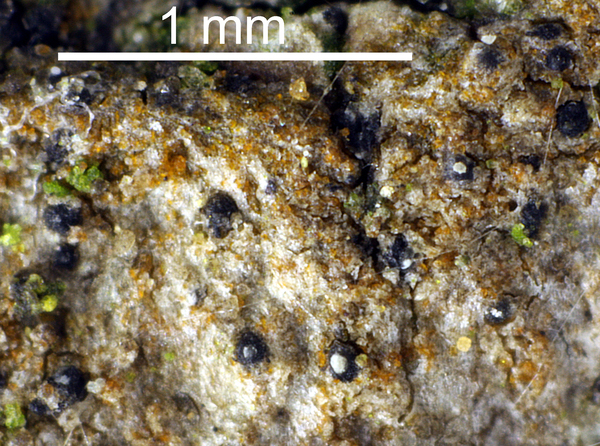

Felix Schumm - CC BY-SA 4.0
Fig. [14896], Germany, Baden-Württemberg, Kreis Göppingen, Faurndau, Friedhof, 48.70390° N, 9.61455° E, 314 m, TK 7223. Leg. et det. Schumm 21.05.2009
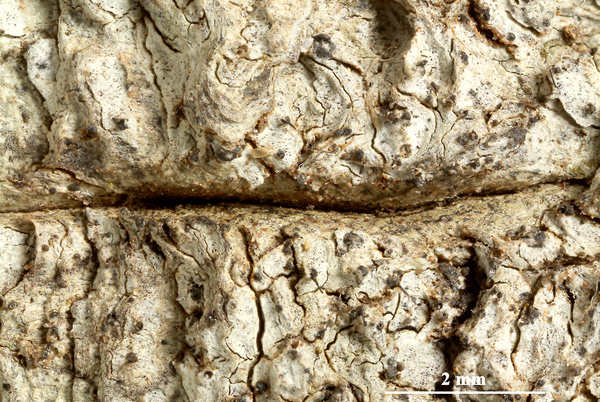

Felix Schumm - CC BY-SA 4.0
[ABL13689], Brazil, Sao Paulo, Botucatu, Botanical garden on campus, on bark in park, 22°53’09’’ S, 48°29’56’’ W, 850 m. Leg. M. Cáceres & A. Aptroot (no 13689), 13.9.2012, det. A. Aptroot 2012
Thallus very thin and inconspicuous, scarcely distinguishable from the
bark. Ascomata up to 0.25 mm diam., frequently absent when the
species may be recognized by the usually abundant small (0.1–0.2 mm)
pycnidia which are conical and with nibble- or peg-like tips and conglutinated
conidia. Ascospores hyaline, 8/ascus, 1(–3)-septate, 15–20 ×
4–5 μm.
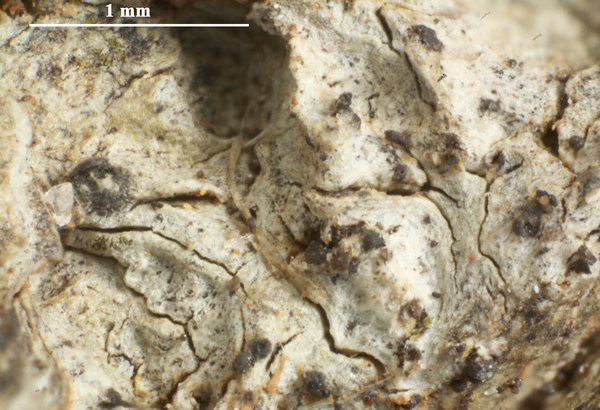

Felix Schumm - CC BY-SA 4.0
[ABL13689], Brazil, Sao Paulo, Botucatu, Botanical garden on campus, on bark in park, 22°53’09’’ S, 48°29’56’’ W, 850 m. Leg. M. Cáceres & A. Aptroot (no 13689), 13.9.2012, det. A. Aptroot 2012
Thallus very thin and inconspicuous, scarcely distinguishable from the
bark. Ascomata up to 0.25 mm diam., frequently absent when the
species may be recognized by the usually abundant small (0.1–0.2 mm)
pycnidia which are conical and with nibble- or peg-like tips and conglutinated
conidia. Ascospores hyaline, 8/ascus, 1(–3)-septate, 15–20 ×
4–5 μm.
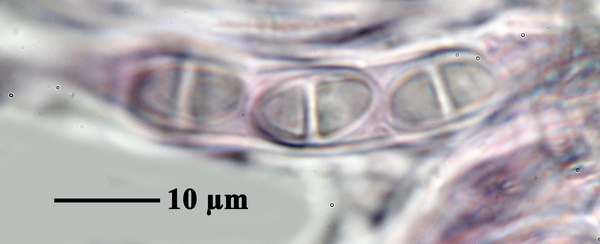

Felix Schumm - CC BY-SA 4.0
[ABL13689], Brazil, Sao Paulo, Botucatu, Botanical garden on campus, on bark in park, 22°53’09’’ S, 48°29’56’’ W, 850 m. Leg. M. Cáceres & A. Aptroot (no 13689), 13.9.2012, det. A. Aptroot 2012
Thallus very thin and inconspicuous, scarcely distinguishable from the
bark. Ascomata up to 0.25 mm diam., frequently absent when the
species may be recognized by the usually abundant small (0.1–0.2 mm)
pycnidia which are conical and with nibble- or peg-like tips and conglutinated
conidia. Ascospores hyaline, 8/ascus, 1(–3)-septate, 15–20 ×
4–5 μm.
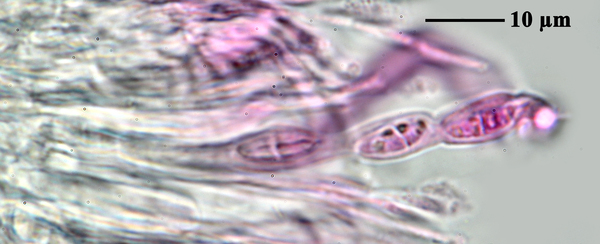

Felix Schumm - CC BY-SA 4.0
[ABL13689], Brazil, Sao Paulo, Botucatu, Botanical garden on campus, on bark in park, 22°53’09’’ S, 48°29’56’’ W, 850 m. Leg. M. Cáceres & A. Aptroot (no 13689), 13.9.2012, det. A. Aptroot 2012
Thallus very thin and inconspicuous, scarcely distinguishable from the
bark. Ascomata up to 0.25 mm diam., frequently absent when the
species may be recognized by the usually abundant small (0.1–0.2 mm)
pycnidia which are conical and with nibble- or peg-like tips and conglutinated
conidia. Ascospores hyaline, 8/ascus, 1(–3)-septate, 15–20 ×
4–5 μm.
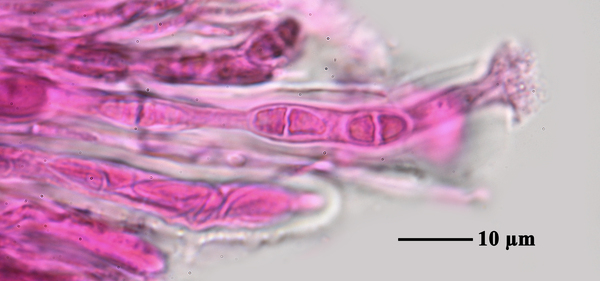

Felix Schumm - CC BY-SA 4.0
[ABL13689], Brazil, Sao Paulo, Botucatu, Botanical garden on campus, on bark in park, 22°53’09’’ S, 48°29’56’’ W, 850 m. Leg. M. Cáceres & A. Aptroot (no 13689), 13.9.2012, det. A. Aptroot 2012
Thallus very thin and inconspicuous, scarcely distinguishable from the
bark. Ascomata up to 0.25 mm diam., frequently absent when the
species may be recognized by the usually abundant small (0.1–0.2 mm)
pycnidia which are conical and with nibble- or peg-like tips and conglutinated
conidia. Ascospores hyaline, 8/ascus, 1(–3)-septate, 15–20 ×
4–5 μm.
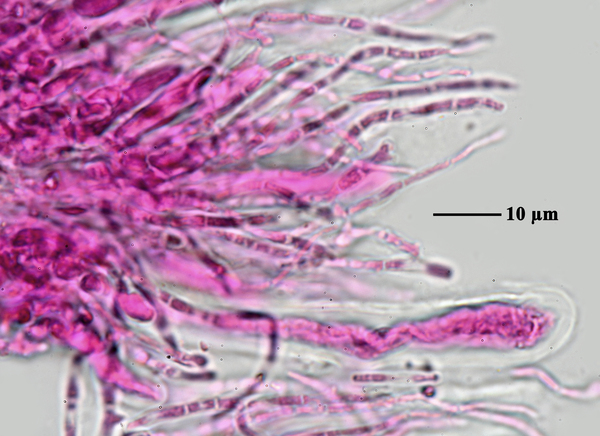

Felix Schumm - CC BY-SA 4.0
[ABL13689], Brazil, Sao Paulo, Botucatu, Botanical garden on campus, on bark in park, 22°53’09’’ S, 48°29’56’’ W, 850 m. Leg. M. Cáceres & A. Aptroot (no 13689), 13.9.2012, det. A. Aptroot 2012
Thallus very thin and inconspicuous, scarcely distinguishable from the
bark. Ascomata up to 0.25 mm diam., frequently absent when the
species may be recognized by the usually abundant small (0.1–0.2 mm)
pycnidia which are conical and with nibble- or peg-like tips and conglutinated
conidia. Ascospores hyaline, 8/ascus, 1(–3)-septate, 15–20 ×
4–5 μm.


Felix Schumm - CC BY-SA 4.0
[ABL13689], Brazil, Sao Paulo, Botucatu, Botanical garden on campus, on bark in park, 22°53’09’’ S, 48°29’56’’ W, 850 m. Leg. M. Cáceres & A. Aptroot (no 13689), 13.9.2012, det. A. Aptroot 2012
Thallus very thin and inconspicuous, scarcely distinguishable from the
bark. Ascomata up to 0.25 mm diam., frequently absent when the
species may be recognized by the usually abundant small (0.1–0.2 mm)
pycnidia which are conical and with nibble- or peg-like tips and conglutinated
conidia. Ascospores hyaline, 8/ascus, 1(–3)-septate, 15–20 ×
4–5 μm.
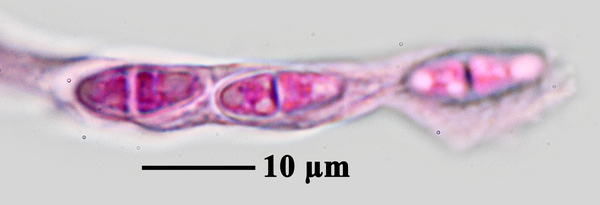

Felix Schumm - CC BY-SA 4.0
[ABL13689], Brazil, Sao Paulo, Botucatu, Botanical garden on campus, on bark in park, 22°53’09’’ S, 48°29’56’’ W, 850 m. Leg. M. Cáceres & A. Aptroot (no 13689), 13.9.2012, det. A. Aptroot 2012
Thallus very thin and inconspicuous, scarcely distinguishable from the
bark. Ascomata up to 0.25 mm diam., frequently absent when the
species may be recognized by the usually abundant small (0.1–0.2 mm)
pycnidia which are conical and with nibble- or peg-like tips and conglutinated
conidia. Ascospores hyaline, 8/ascus, 1(–3)-septate, 15–20 ×
4–5 μm.
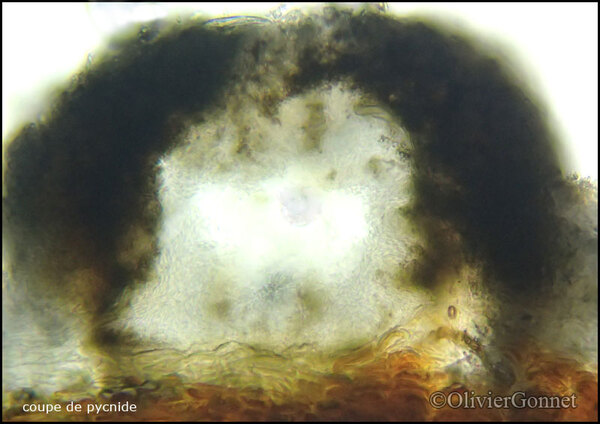
courtesy Olivier Gonnet - Source: https://www.afl-lichenologie.fr/Photos_AFL/Photos_AFL_A/Textes_A2/Anisomeridium_polypori.htm
France, Session AFL 2015 dans le Lot, Blanzaguet
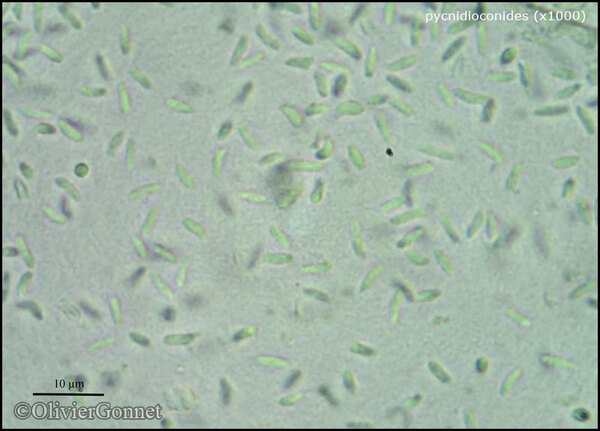
courtesy Olivier Gonnet - Source: https://www.afl-lichenologie.fr/Photos_AFL/Photos_AFL_A/Textes_A2/Anisomeridium_polypori.htm
France, Session AFL 2015 dans le Lot, Blanzaguet
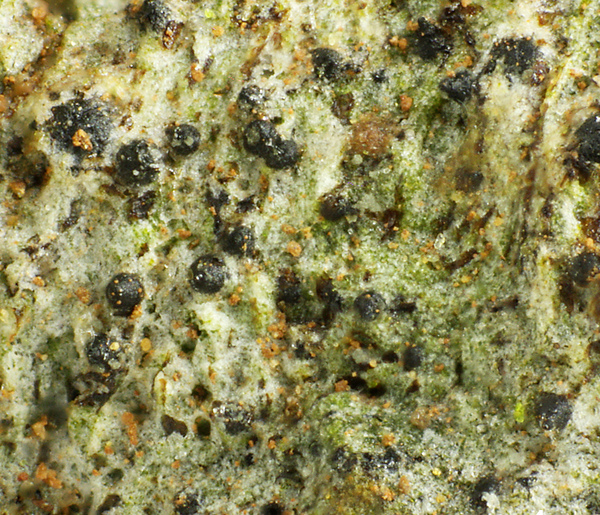

Felix Schumm CC BY-SA 4.0
[ABL-69726], Madeira, Camacha, Valle Paraiso, on bark. 36°17’ N, 3°25’ E, alt. 750 m. Leg. et det. Aptroot 06.2011
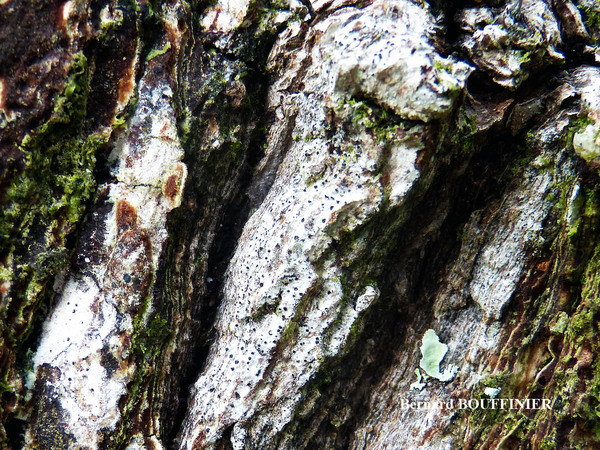
Bernard Bouffinier - Source: http://www.lichensmaritimes.org/index.php?task=fiche&lichen=494&lang=en
France, Lesteven
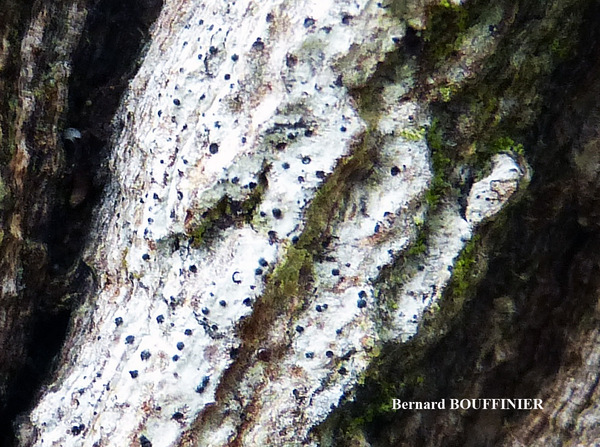
Bernard Bouffinier - Source: http://www.lichensmaritimes.org/index.php?task=fiche&lichen=494&lang=en
France, Lesteven
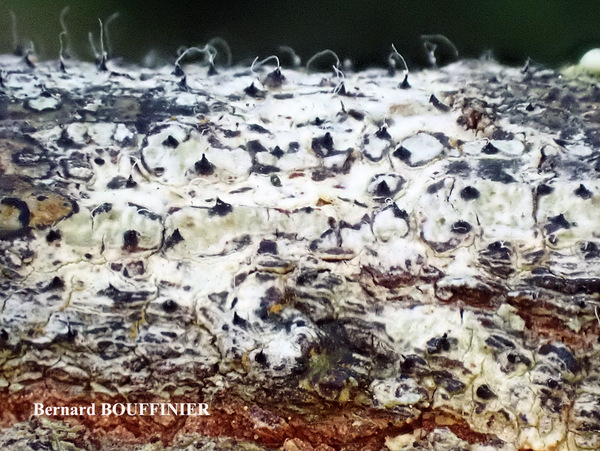
Bernard Bouffinier - Source: http://www.lichensmaritimes.org/index.php?task=fiche&lichen=494&lang=en
France, Lesteven
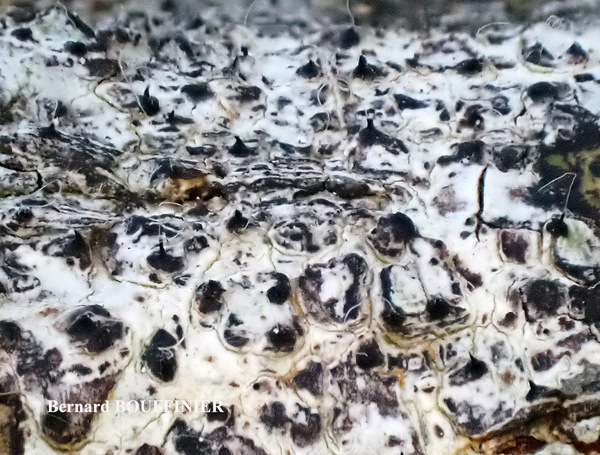
Bernard Bouffinier - Source: http://www.lichensmaritimes.org/index.php?task=fiche&lichen=494&lang=en
France, Lesteven
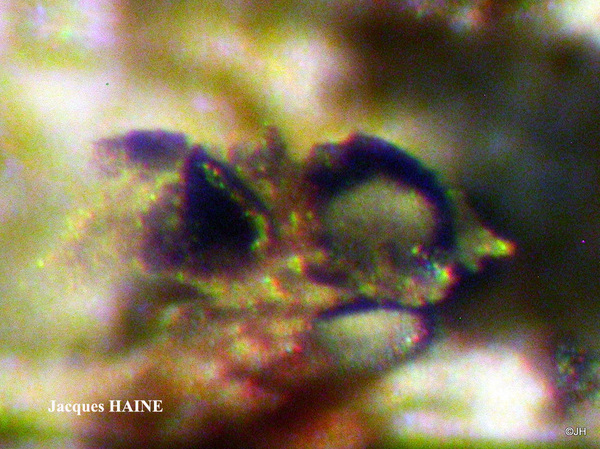
Jacques Haine - Source: http://www.lichensmaritimes.org/index.php?task=fiche&lichen=494&lang=en
Belgium
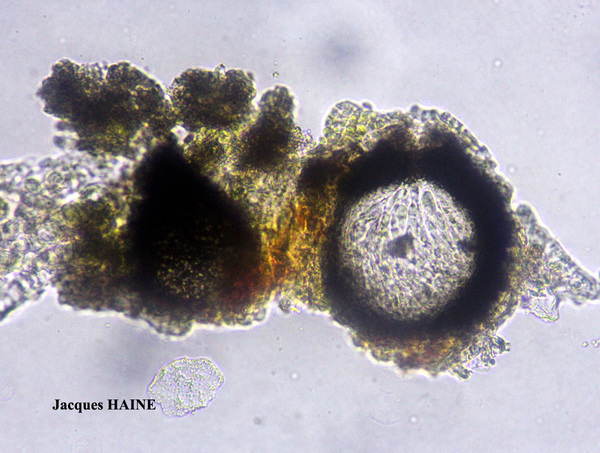
Jacques Haine - Source: http://www.lichensmaritimes.org/index.php?task=fiche&lichen=494&lang=en
Belgium
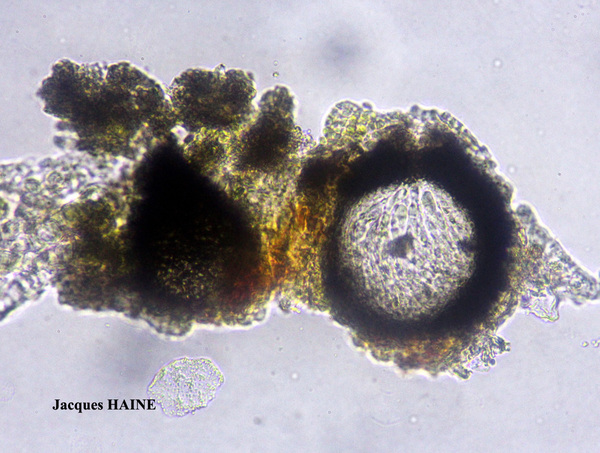
Jacques Haine - Source: http://www.lichensmaritimes.org/index.php?task=fiche&lichen=494&lang=en
Belgium
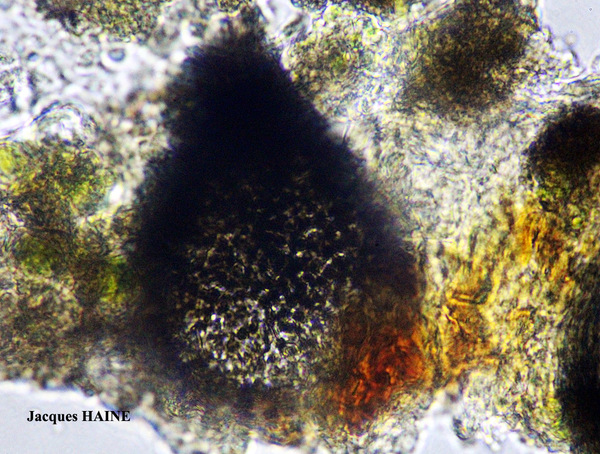
Jacques Haine - Source: http://www.lichensmaritimes.org/index.php?task=fiche&lichen=494&lang=en
Belgium
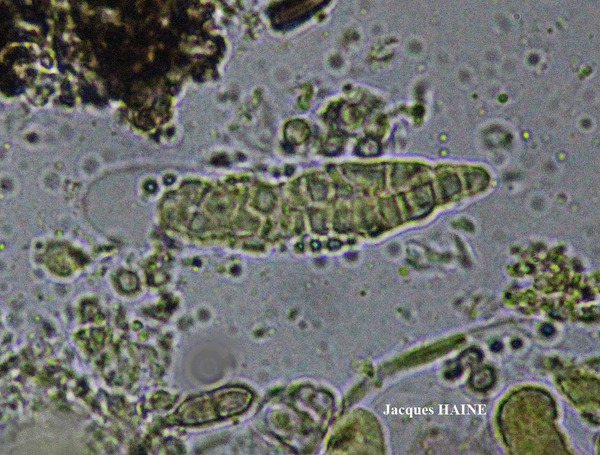
Jacques Haine - Source: http://www.lichensmaritimes.org/index.php?task=fiche&lichen=494&lang=en
Belgium
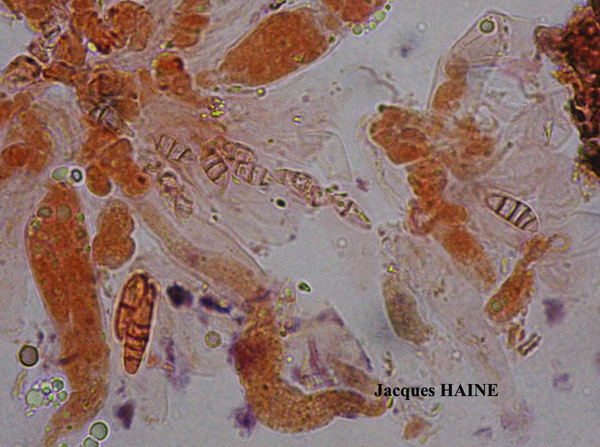
Jacques Haine - Source: http://www.lichensmaritimes.org/index.php?task=fiche&lichen=494&lang=en
Belgium
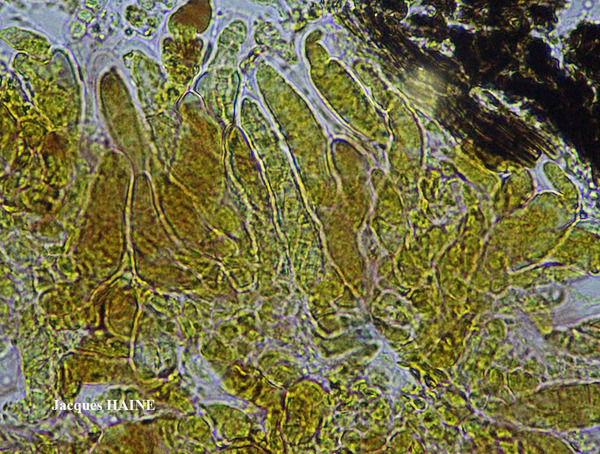
Jacques Haine - Source: http://www.lichensmaritimes.org/index.php?task=fiche&lichen=494&lang=en
Belgium
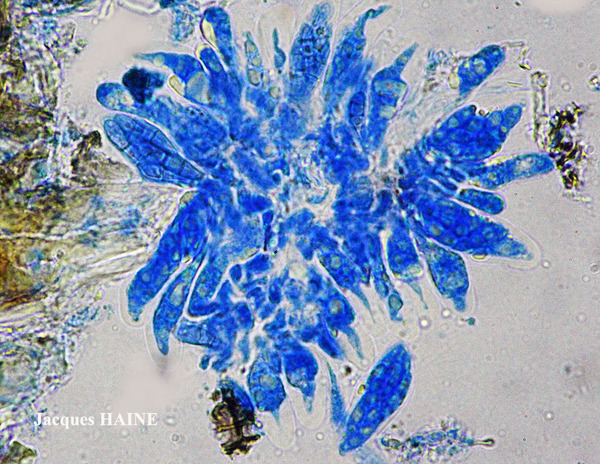
Jacques Haine - Source: http://www.lichensmaritimes.org/index.php?task=fiche&lichen=494&lang=en
Belgium
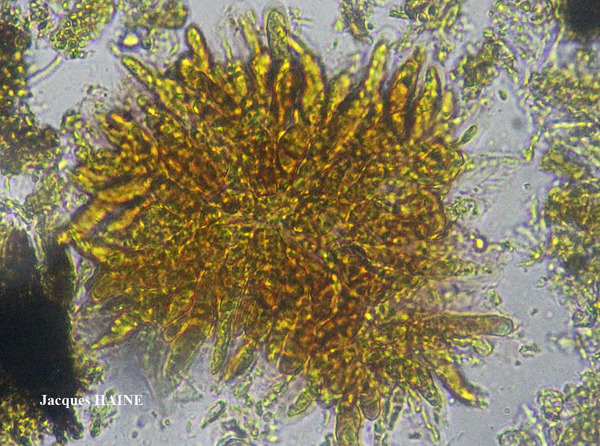
Jacques Haine - Source: http://www.lichensmaritimes.org/index.php?task=fiche&lichen=494&lang=en
Belgium
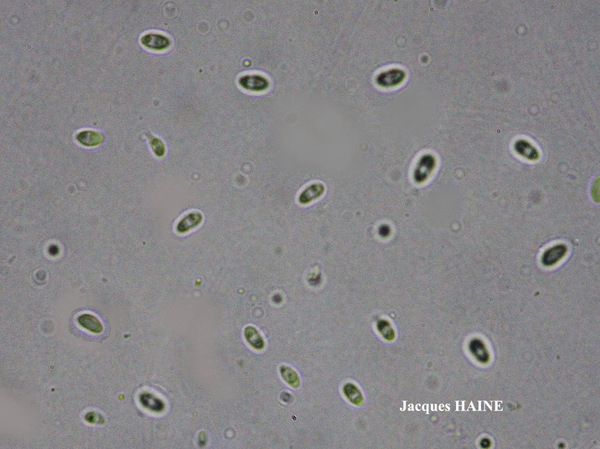
Jacques Haine - Source: http://www.lichensmaritimes.org/index.php?task=fiche&lichen=494&lang=en
Belgium
macroconidia
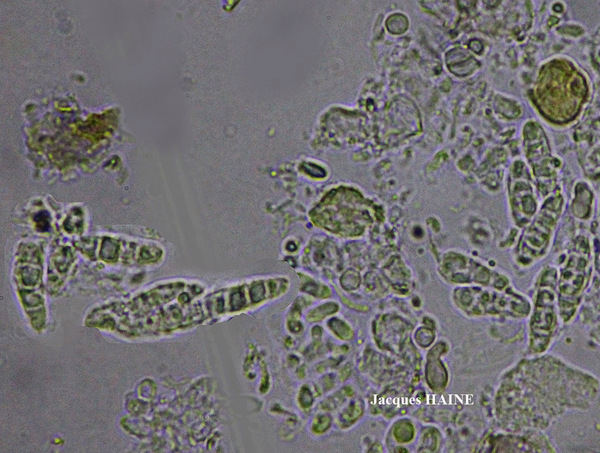
Jacques Haine - Source: http://www.lichensmaritimes.org/index.php?task=fiche&lichen=494&lang=en
Belgium
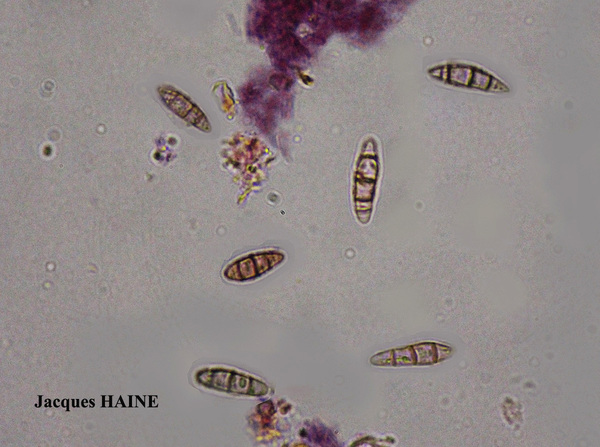
Jacques Haine - Source: http://www.lichensmaritimes.org/index.php?task=fiche&lichen=494&lang=en
Belgium
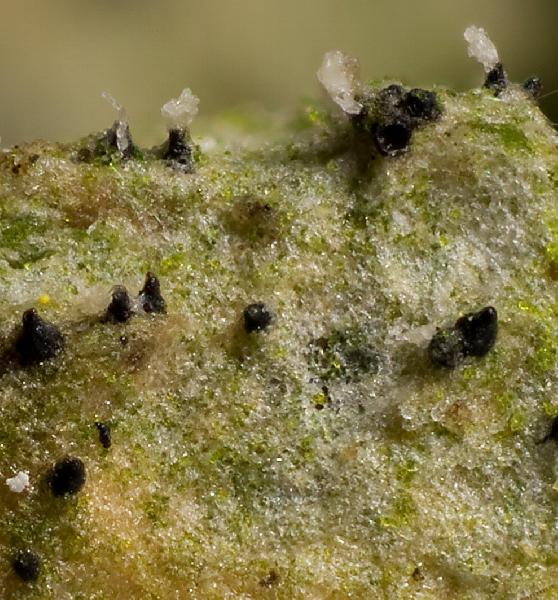
Ulrich Kirschbaum CC BY-SA 4.0 - Source: https://www.thm.de/lse/ulrich-kirschbaum/flechtenbilder
On eutrophicated, rough bark of deciduous trees.Central Europe; Germany: Hesse.
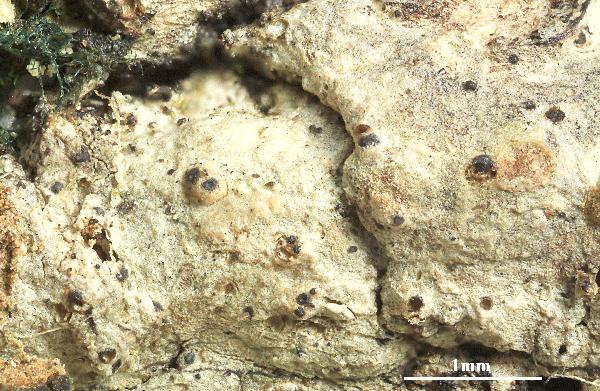

Felix Schumm - CC BY-SA 4.0
[ABL40959], Brazil, Bahia, Chapada Diamantina, Palmeiras, Cachoeira
Pai Inácio, near waterfall on tree bark. 12°27'24'' S, 41°27'57'' W, 850
m. Leg. M. Cáceres & A. Aptroot (no 40959), 23.07.2017, det. A.
Aptroot, 2017. - Spores 1(-3)-septate, 12-23 x 3-5 μm.
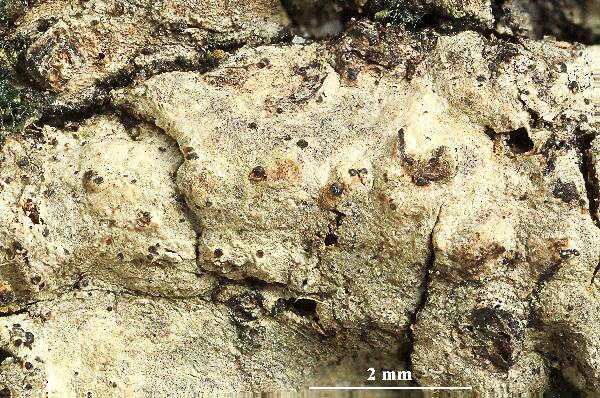

Felix Schumm - CC BY-SA 4.0
[ABL40959], Brazil, Bahia, Chapada Diamantina, Palmeiras, Cachoeira
Pai Inácio, near waterfall on tree bark. 12°27'24'' S, 41°27'57'' W, 850
m. Leg. M. Cáceres & A. Aptroot (no 40959), 23.07.2017, det. A.
Aptroot, 2017. - Spores 1(-3)-septate, 12-23 x 3-5 μm.
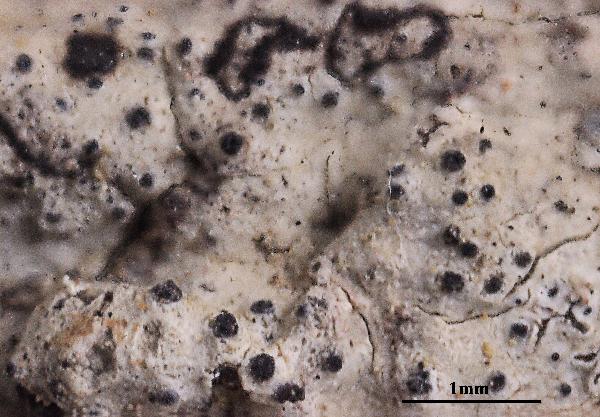

Felix Schumm - CC BY 4.0
[15036], La Reunion, beim Kraterrand des Piton Maido, Ginster-Erica-
Gebüschvegetation mit Lavablöcken; 21,07100°S, 55,38788°E, 2090
m. Leg. F. Schumm & J.-P. Frahm, 07.09.2009, det. F. Schumm.
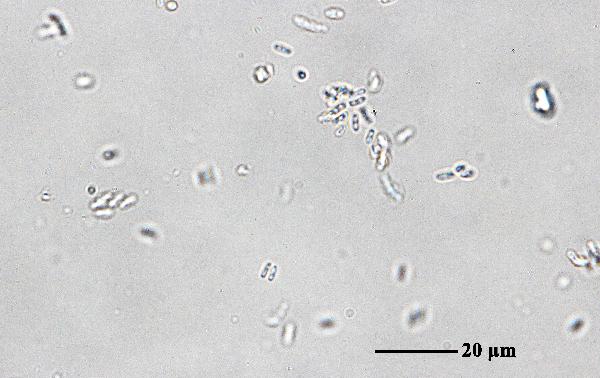

Felix Schumm - CC BY 4.0
[15036], La Reunion, beim Kraterrand des Piton Maido, Ginster-Erica-
Gebüschvegetation mit Lavablöcken; 21,07100°S, 55,38788°E, 2090
m. Leg. F. Schumm & J.-P. Frahm, 07.09.2009, det. F. Schumm.
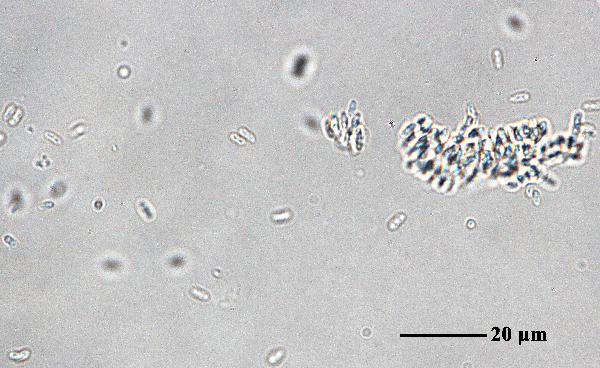

Felix Schumm - CC BY 4.0
[15036], La Reunion, beim Kraterrand des Piton Maido, Ginster-Erica-
Gebüschvegetation mit Lavablöcken; 21,07100°S, 55,38788°E, 2090
m. Leg. F. Schumm & J.-P. Frahm, 07.09.2009, det. F. Schumm.
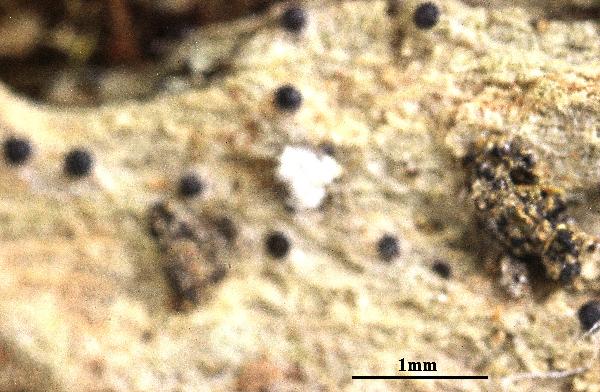

Felix Schumm - CC BY 4.0
[VZR61], Austria,Stiria, montes Koralpe: Stainz. loco "Sauerbrunn"
dicto, 400 m. Ad corticem fruticum (Sambucus nigra) in valle rivi. Leg.
J. Poelt & A. Vezda, 5.7.1992. Ex A. Vezda: Lichenes Rariores
Exsiccati Nr. 61.
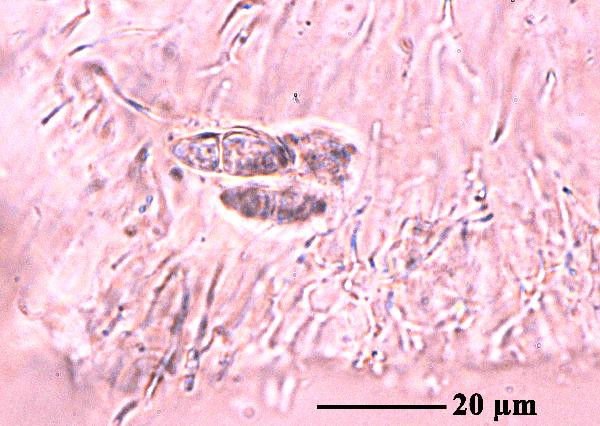

Felix Schumm - CC BY 4.0
[VZR61], Austria,Stiria, montes Koralpe: Stainz. loco "Sauerbrunn"
dicto, 400 m. Ad corticem fruticum (Sambucus nigra) in valle rivi. Leg.
J. Poelt & A. Vezda, 5.7.1992. Ex A. Vezda: Lichenes Rariores
Exsiccati Nr. 61.
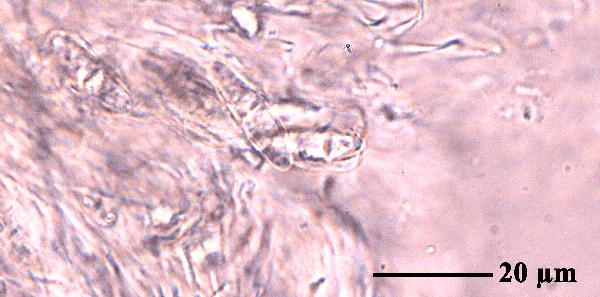

Felix Schumm - CC BY 4.0
[VZR61], Austria,Stiria, montes Koralpe: Stainz. loco "Sauerbrunn"
dicto, 400 m. Ad corticem fruticum (Sambucus nigra) in valle rivi. Leg.
J. Poelt & A. Vezda, 5.7.1992. Ex A. Vezda: Lichenes Rariores
Exsiccati Nr. 61.
Growth form: Crustose
Substrata: bark
Photobiont: Trentepohlia
Reproductive strategy: mainly sexual, or asexual by conidia and thalloconidia
Most common in areas with a humid-warm climate (e.g. most of Tyrrenian Italy)
Commonnes-rarity: (info)
Alpine belt: absent
Subalpine belt: absent
Oromediterranean belt: absent
Montane belt: rare
Submediterranean belt: rather rare
Padanian area: absent
Humid submediterranean belt: rather common
Humid mediterranean belt: very rare
Dry mediterranean belt: absent

Predictive model
| Herbarium samples |

courtesy Olivier Gonnet - Source: https://www.afl-lichenologie.fr/Photos_AFL/Photos_AFL_A/Textes_A2/Anisomeridium_polypori.htm
France, Session AFL 2015 dans le Lot, Blanzaguet


P.L. Nimis; Owner: Department of Life Sciences, University of Trieste
Herbarium: TSB (31399)
2002/12/03


Felix Schumm – CC BY-SA 4.0
Fig. [14896], Germany, Baden-Württemberg, Kreis Göppingen, Faurndau, Friedhof, 48.70390° N, 9.61455° E, 314 m, TK 7223. Leg. et det. Schumm 21.05.2009


Felix Schumm – CC BY-SA 4.0
[ABL-69726], Madeira, Camacha, Valle Paraiso, on bark. 36°17’ N, 3°25’ E, alt. 750 m. Leg. et det. Aptroot 06.2011


Felix Schumm – CC BY-SA 4.0
[ABL-69726], Madeira, Camacha, Valle Paraiso, on bark. 36°17’ N, 3°25’ E, alt. 750 m. Leg. et det. Aptroot 06.2011


Felix Schumm – CC BY-SA 4.0
[ABL-69726], Madeira, Camacha, Valle Paraiso, on bark. 36°17’ N, 3°25’ E, alt. 750 m. Leg. et det. Aptroot 06.2011


Felix Schumm – CC BY-SA 4.0
[ABL-69726], Madeira, Camacha, Valle Paraiso, on bark. 36°17’ N, 3°25’ E, alt. 750 m. Leg. et det. Aptroot 06.2011


Felix Schumm – CC BY-SA 4.0
[ABL-69726], Madeira, Camacha, Valle Paraiso, on bark. 36°17’ N, 3°25’ E, alt. 750 m. Leg. et det. Aptroot 06.2011


Felix Schumm – CC BY-SA 4.0
[ABL-69726], Madeira, Camacha, Valle Paraiso, on bark. 36°17’ N, 3°25’ E, alt. 750 m. Leg. et det. Aptroot 06.2011


Felix Schumm – CC BY-SA 4.0
[ABL-69726], Madeira, Camacha, Valle Paraiso, on bark. 36°17’ N, 3°25’ E, alt. 750 m. Leg. et det. Aptroot 06.2011


Felix Schumm – CC BY-SA 4.0
[ABL-69726], Madeira, Camacha, Valle Paraiso, on bark. 36°17’ N, 3°25’ E, alt. 750 m. Leg. et det. Aptroot 06.2011


Felix Schumm – CC BY-SA 4.0
[ABL-69726], Madeira, Camacha, Valle Paraiso, on bark. 36°17’ N, 3°25’ E, alt. 750 m. Leg. et det. Aptroot 06.2011


Felix Schumm – CC BY-SA 4.0
[ABL-69726], Madeira, Camacha, Valle Paraiso, on bark. 36°17’ N, 3°25’ E, alt. 750 m. Leg. et det. Aptroot 06.2011


Felix Schumm – CC BY-SA 4.0
[ABL-69726], Madeira, Camacha, Valle Paraiso, on bark. 36°17’ N, 3°25’ E, alt. 750 m. Leg. et det. Aptroot 06.2011


Felix Schumm – CC BY-SA 4.0
[ABL-69726], Madeira, Camacha, Valle Paraiso, on bark. 36°17’ N, 3°25’ E, alt. 750 m. Leg. et det. Aptroot 06.2011


Felix Schumm – CC BY-SA 4.0
[ABL-69726], Madeira, Camacha, Valle Paraiso, on bark. 36°17’ N, 3°25’ E, alt. 750 m. Leg. et det. Aptroot 06.2011


Felix Schumm – CC BY-SA 4.0
[ABL-69726], Madeira, Camacha, Valle Paraiso, on bark. 36°17’ N, 3°25’ E, alt. 750 m. Leg. et det. Aptroot 06.2011


Felix Schumm – CC BY-SA 4.0
[ABL-69726], Madeira, Camacha, Valle Paraiso, on bark. 36°17’ N, 3°25’ E, alt. 750 m. Leg. et det. Aptroot 06.2011


Felix Schumm – CC BY-SA 4.0
[ABL-69726], Madeira, Camacha, Valle Paraiso, on bark. 36°17’ N, 3°25’ E, alt. 750 m. Leg. et det. Aptroot 06.2011


Felix Schumm – CC BY-SA 4.0
[ABL-69726], Madeira, Camacha, Valle Paraiso, on bark. 36°17’ N, 3°25’ E, alt. 750 m. Leg. et det. Aptroot 06.2011


Felix Schumm – CC BY-SA 4.0
[ABL-69726], Madeira, Camacha, Valle Paraiso, on bark. 36°17’ N, 3°25’ E, alt. 750 m. Leg. et det. Aptroot 06.2011


Felix Schumm – CC BY-SA 4.0
[ABL-69726], Madeira, Camacha, Valle Paraiso, on bark. 36°17’ N, 3°25’ E, alt. 750 m. Leg. et det. Aptroot 06.2011


Felix Schumm – CC BY-SA 4.0
[ABL-69726], Madeira, Camacha, Valle Paraiso, on bark. 36°17’ N, 3°25’ E, alt. 750 m. Leg. et det. Aptroot 06.2011


Felix Schumm – CC BY-SA 4.0
[ABL-69726], Madeira, Camacha, Valle Paraiso, on bark. 36°17’ N, 3°25’ E, alt. 750 m. Leg. et det. Aptroot 06.2011


Felix Schumm – CC BY-SA 4.0
[ABL-69726], Madeira, Camacha, Valle Paraiso, on bark. 36°17’ N, 3°25’ E, alt. 750 m. Leg. et det. Aptroot 06.2011


Felix Schumm – CC BY-SA 4.0
[ABL-69726], Madeira, Camacha, Valle Paraiso, on bark. 36°17’ N, 3°25’ E, alt. 750 m. Leg. et det. Aptroot 06.2011


Felix Schumm – CC BY-SA 4.0
[ABL-69726], Madeira, Camacha, Valle Paraiso, on bark. 36°17’ N, 3°25’ E, alt. 750 m. Leg. et det. Aptroot 06.2011


Felix Schumm – CC BY-SA 4.0
[ABL-69726], Madeira, Camacha, Valle Paraiso, on bark. 36°17’ N, 3°25’ E, alt. 750 m. Leg. et det. Aptroot 06.2011


Felix Schumm – CC BY-SA 4.0
[ABL-69726], Madeira, Camacha, Valle Paraiso, on bark. 36°17’ N, 3°25’ E, alt. 750 m. Leg. et det. Aptroot 06.2011


Felix Schumm – CC BY-SA 4.0
[ABL-69726], Madeira, Camacha, Valle Paraiso, on bark. 36°17’ N, 3°25’ E, alt. 750 m. Leg. et det. Aptroot 06.2011


Felix Schumm - CC BY-SA 4.0
Fig. [14896], Germany, Baden-Württemberg, Kreis Göppingen, Faurndau, Friedhof, 48.70390° N, 9.61455° E, 314 m, TK 7223. Leg. et det. Schumm 21.05.2009


Felix Schumm - CC BY-SA 4.0
Fig. [14896], Germany, Baden-Württemberg, Kreis Göppingen, Faurndau, Friedhof, 48.70390° N, 9.61455° E, 314 m, TK 7223. Leg. et det. Schumm 21.05.2009


Felix Schumm - CC BY-SA 4.0
Fig. [14896], Germany, Baden-Württemberg, Kreis Göppingen, Faurndau, Friedhof, 48.70390° N, 9.61455° E, 314 m, TK 7223. Leg. et det. Schumm 21.05.2009


Felix Schumm - CC BY-SA 4.0
Fig. [14896], Germany, Baden-Württemberg, Kreis Göppingen, Faurndau, Friedhof, 48.70390° N, 9.61455° E, 314 m, TK 7223. Leg. et det. Schumm 21.05.2009


Felix Schumm - CC BY-SA 4.0
[ABL13689], Brazil, Sao Paulo, Botucatu, Botanical garden on campus, on bark in park, 22°53’09’’ S, 48°29’56’’ W, 850 m. Leg. M. Cáceres & A. Aptroot (no 13689), 13.9.2012, det. A. Aptroot 2012
Thallus very thin and inconspicuous, scarcely distinguishable from the
bark. Ascomata up to 0.25 mm diam., frequently absent when the
species may be recognized by the usually abundant small (0.1–0.2 mm)
pycnidia which are conical and with nibble- or peg-like tips and conglutinated
conidia. Ascospores hyaline, 8/ascus, 1(–3)-septate, 15–20 ×
4–5 μm.


Felix Schumm - CC BY-SA 4.0
[ABL13689], Brazil, Sao Paulo, Botucatu, Botanical garden on campus, on bark in park, 22°53’09’’ S, 48°29’56’’ W, 850 m. Leg. M. Cáceres & A. Aptroot (no 13689), 13.9.2012, det. A. Aptroot 2012
Thallus very thin and inconspicuous, scarcely distinguishable from the
bark. Ascomata up to 0.25 mm diam., frequently absent when the
species may be recognized by the usually abundant small (0.1–0.2 mm)
pycnidia which are conical and with nibble- or peg-like tips and conglutinated
conidia. Ascospores hyaline, 8/ascus, 1(–3)-septate, 15–20 ×
4–5 μm.


Felix Schumm - CC BY-SA 4.0
[ABL13689], Brazil, Sao Paulo, Botucatu, Botanical garden on campus, on bark in park, 22°53’09’’ S, 48°29’56’’ W, 850 m. Leg. M. Cáceres & A. Aptroot (no 13689), 13.9.2012, det. A. Aptroot 2012
Thallus very thin and inconspicuous, scarcely distinguishable from the
bark. Ascomata up to 0.25 mm diam., frequently absent when the
species may be recognized by the usually abundant small (0.1–0.2 mm)
pycnidia which are conical and with nibble- or peg-like tips and conglutinated
conidia. Ascospores hyaline, 8/ascus, 1(–3)-septate, 15–20 ×
4–5 μm.


Felix Schumm - CC BY-SA 4.0
[ABL13689], Brazil, Sao Paulo, Botucatu, Botanical garden on campus, on bark in park, 22°53’09’’ S, 48°29’56’’ W, 850 m. Leg. M. Cáceres & A. Aptroot (no 13689), 13.9.2012, det. A. Aptroot 2012
Thallus very thin and inconspicuous, scarcely distinguishable from the
bark. Ascomata up to 0.25 mm diam., frequently absent when the
species may be recognized by the usually abundant small (0.1–0.2 mm)
pycnidia which are conical and with nibble- or peg-like tips and conglutinated
conidia. Ascospores hyaline, 8/ascus, 1(–3)-septate, 15–20 ×
4–5 μm.


Felix Schumm - CC BY-SA 4.0
[ABL13689], Brazil, Sao Paulo, Botucatu, Botanical garden on campus, on bark in park, 22°53’09’’ S, 48°29’56’’ W, 850 m. Leg. M. Cáceres & A. Aptroot (no 13689), 13.9.2012, det. A. Aptroot 2012
Thallus very thin and inconspicuous, scarcely distinguishable from the
bark. Ascomata up to 0.25 mm diam., frequently absent when the
species may be recognized by the usually abundant small (0.1–0.2 mm)
pycnidia which are conical and with nibble- or peg-like tips and conglutinated
conidia. Ascospores hyaline, 8/ascus, 1(–3)-septate, 15–20 ×
4–5 μm.


Felix Schumm - CC BY-SA 4.0
[ABL13689], Brazil, Sao Paulo, Botucatu, Botanical garden on campus, on bark in park, 22°53’09’’ S, 48°29’56’’ W, 850 m. Leg. M. Cáceres & A. Aptroot (no 13689), 13.9.2012, det. A. Aptroot 2012
Thallus very thin and inconspicuous, scarcely distinguishable from the
bark. Ascomata up to 0.25 mm diam., frequently absent when the
species may be recognized by the usually abundant small (0.1–0.2 mm)
pycnidia which are conical and with nibble- or peg-like tips and conglutinated
conidia. Ascospores hyaline, 8/ascus, 1(–3)-septate, 15–20 ×
4–5 μm.


Felix Schumm - CC BY-SA 4.0
[ABL13689], Brazil, Sao Paulo, Botucatu, Botanical garden on campus, on bark in park, 22°53’09’’ S, 48°29’56’’ W, 850 m. Leg. M. Cáceres & A. Aptroot (no 13689), 13.9.2012, det. A. Aptroot 2012
Thallus very thin and inconspicuous, scarcely distinguishable from the
bark. Ascomata up to 0.25 mm diam., frequently absent when the
species may be recognized by the usually abundant small (0.1–0.2 mm)
pycnidia which are conical and with nibble- or peg-like tips and conglutinated
conidia. Ascospores hyaline, 8/ascus, 1(–3)-septate, 15–20 ×
4–5 μm.


Felix Schumm - CC BY-SA 4.0
[ABL13689], Brazil, Sao Paulo, Botucatu, Botanical garden on campus, on bark in park, 22°53’09’’ S, 48°29’56’’ W, 850 m. Leg. M. Cáceres & A. Aptroot (no 13689), 13.9.2012, det. A. Aptroot 2012
Thallus very thin and inconspicuous, scarcely distinguishable from the
bark. Ascomata up to 0.25 mm diam., frequently absent when the
species may be recognized by the usually abundant small (0.1–0.2 mm)
pycnidia which are conical and with nibble- or peg-like tips and conglutinated
conidia. Ascospores hyaline, 8/ascus, 1(–3)-septate, 15–20 ×
4–5 μm.

courtesy Olivier Gonnet - Source: https://www.afl-lichenologie.fr/Photos_AFL/Photos_AFL_A/Textes_A2/Anisomeridium_polypori.htm
France, Session AFL 2015 dans le Lot, Blanzaguet

courtesy Olivier Gonnet - Source: https://www.afl-lichenologie.fr/Photos_AFL/Photos_AFL_A/Textes_A2/Anisomeridium_polypori.htm
France, Session AFL 2015 dans le Lot, Blanzaguet


Felix Schumm CC BY-SA 4.0
[ABL-69726], Madeira, Camacha, Valle Paraiso, on bark. 36°17’ N, 3°25’ E, alt. 750 m. Leg. et det. Aptroot 06.2011

Bernard Bouffinier - Source: http://www.lichensmaritimes.org/index.php?task=fiche&lichen=494&lang=en
France, Lesteven

Bernard Bouffinier - Source: http://www.lichensmaritimes.org/index.php?task=fiche&lichen=494&lang=en
France, Lesteven

Bernard Bouffinier - Source: http://www.lichensmaritimes.org/index.php?task=fiche&lichen=494&lang=en
France, Lesteven

Bernard Bouffinier - Source: http://www.lichensmaritimes.org/index.php?task=fiche&lichen=494&lang=en
France, Lesteven

Jacques Haine - Source: http://www.lichensmaritimes.org/index.php?task=fiche&lichen=494&lang=en
Belgium

Jacques Haine - Source: http://www.lichensmaritimes.org/index.php?task=fiche&lichen=494&lang=en
Belgium

Jacques Haine - Source: http://www.lichensmaritimes.org/index.php?task=fiche&lichen=494&lang=en
Belgium

Jacques Haine - Source: http://www.lichensmaritimes.org/index.php?task=fiche&lichen=494&lang=en
Belgium

Jacques Haine - Source: http://www.lichensmaritimes.org/index.php?task=fiche&lichen=494&lang=en
Belgium

Jacques Haine - Source: http://www.lichensmaritimes.org/index.php?task=fiche&lichen=494&lang=en
Belgium

Jacques Haine - Source: http://www.lichensmaritimes.org/index.php?task=fiche&lichen=494&lang=en
Belgium

Jacques Haine - Source: http://www.lichensmaritimes.org/index.php?task=fiche&lichen=494&lang=en
Belgium

Jacques Haine - Source: http://www.lichensmaritimes.org/index.php?task=fiche&lichen=494&lang=en
Belgium

Jacques Haine - Source: http://www.lichensmaritimes.org/index.php?task=fiche&lichen=494&lang=en
Belgium
macroconidia

Jacques Haine - Source: http://www.lichensmaritimes.org/index.php?task=fiche&lichen=494&lang=en
Belgium

Jacques Haine - Source: http://www.lichensmaritimes.org/index.php?task=fiche&lichen=494&lang=en
Belgium

Ulrich Kirschbaum CC BY-SA 4.0 - Source: https://www.thm.de/lse/ulrich-kirschbaum/flechtenbilder
On eutrophicated, rough bark of deciduous trees.Central Europe; Germany: Hesse.


Felix Schumm - CC BY-SA 4.0
[ABL40959], Brazil, Bahia, Chapada Diamantina, Palmeiras, Cachoeira Pai Inácio, near waterfall on tree bark. 12°27'24'' S, 41°27'57'' W, 850 m. Leg. M. Cáceres & A. Aptroot (no 40959), 23.07.2017, det. A. Aptroot, 2017. - Spores 1(-3)-septate, 12-23 x 3-5 μm.


Felix Schumm - CC BY-SA 4.0
[ABL40959], Brazil, Bahia, Chapada Diamantina, Palmeiras, Cachoeira Pai Inácio, near waterfall on tree bark. 12°27'24'' S, 41°27'57'' W, 850 m. Leg. M. Cáceres & A. Aptroot (no 40959), 23.07.2017, det. A. Aptroot, 2017. - Spores 1(-3)-septate, 12-23 x 3-5 μm.


Felix Schumm - CC BY 4.0
[15036], La Reunion, beim Kraterrand des Piton Maido, Ginster-Erica- Gebüschvegetation mit Lavablöcken; 21,07100°S, 55,38788°E, 2090 m. Leg. F. Schumm & J.-P. Frahm, 07.09.2009, det. F. Schumm.


Felix Schumm - CC BY 4.0
[15036], La Reunion, beim Kraterrand des Piton Maido, Ginster-Erica- Gebüschvegetation mit Lavablöcken; 21,07100°S, 55,38788°E, 2090 m. Leg. F. Schumm & J.-P. Frahm, 07.09.2009, det. F. Schumm.


Felix Schumm - CC BY 4.0
[15036], La Reunion, beim Kraterrand des Piton Maido, Ginster-Erica- Gebüschvegetation mit Lavablöcken; 21,07100°S, 55,38788°E, 2090 m. Leg. F. Schumm & J.-P. Frahm, 07.09.2009, det. F. Schumm.


Felix Schumm - CC BY 4.0
[VZR61], Austria,Stiria, montes Koralpe: Stainz. loco "Sauerbrunn" dicto, 400 m. Ad corticem fruticum (Sambucus nigra) in valle rivi. Leg. J. Poelt & A. Vezda, 5.7.1992. Ex A. Vezda: Lichenes Rariores Exsiccati Nr. 61.


Felix Schumm - CC BY 4.0
[VZR61], Austria,Stiria, montes Koralpe: Stainz. loco "Sauerbrunn" dicto, 400 m. Ad corticem fruticum (Sambucus nigra) in valle rivi. Leg. J. Poelt & A. Vezda, 5.7.1992. Ex A. Vezda: Lichenes Rariores Exsiccati Nr. 61.


 Index Fungorum
Index Fungorum
 GBIF
GBIF
